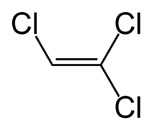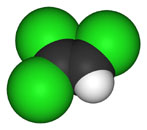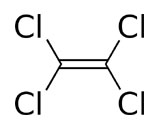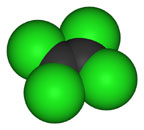Contaminated Military Bases:
California
- Marine Corps Logistics Base Barstow
- El Toro Marine Corps Air Station (decommissioned)
- Mather Air Force Base
- McClellan Air Force Base
- March Air Force Base
- Norton Air Force Base
- Camp Pendleton Marine Corps Base
Florida
Gaum
Massachusetts
Michigan
Minnesota
Missouri
North Carolina
Nebraska
New Hampshire
New Jersey
New York
Pennsylvania
Texas
Washington
TCE • PCE
TCE (aka trichloroethylene)


Breathing small amounts may cause headaches, lung irritation, dizziness, poor coordination, and difficulty concentrating. Breathing large amounts of trichloroethylene may cause impaired heart function, unconsciousness, and death. Breathing it for long periods may cause nerve, kidney, and liver damage.
Drinking large amounts of trichloroethylene may cause nausea, liver damage, unconsciousness, impaired heart function, or death. Drinking small amounts of trichloroethylene for long periods may cause liver and kidney damage, impaired immune system function, and impaired fetal development in pregnant women, although the extent of some of these effects is not yet clear.
Skin contact with trichloroethylene for short periods may cause skin rashes.
Some studies with mice and rats have suggested that high levels of trichloroethylene may cause liver, kidney, or lung cancer. Some studies of people exposed over long periods to high levels of trichloroethylene in drinking water or in workplace air have found evidence of increased cancer. Although, there are some concerns about the studies of people who were exposed to trichloroethylene, some of the effects found in people were similar to effects in animals.
In its 9th Report on Carcinogens, the National Toxicology Program (NTP) determined that trichloroethylene is “reasonably anticipated to be a human carcinogen.” The International Agency for Research on Cancer (IARC) has determined that trichloroethylene is “probably carcinogenic to humans.”
PCE (aka tetrachloroethylene or perchloroethylene)


High concentrations of tetrachloroethylene (particularly in closed, poorly ventilated areas) can cause dizziness, headache, sleepiness, confusion, nausea, difficulty in speaking and walking, unconsciousness, and death.
Irritation may result from repeated or extended skin contact with it. These symptoms occur almost entirely in work (or hobby) environments when people have been accidentally exposed to high concentrations or have intentionally used tetrachloroethylene to get a "high."
In industry, most workers are exposed to levels lower than those causing obvious nervous system effects. The health effects of breathing in air or drinking water with low levels of tetrachloroethylene are not known.
Results from some studies suggest that women who work in dry cleaning industries where exposures to tetrachloroethylene can be quite high may have more menstrual problems and spontaneous abortions than women who are not exposed. However, it is not known if tetrachloroethylene was responsible for these problems because other possible causes were not considered.
Results of animal studies, conducted with amounts much higher than those that most people are exposed to, show that tetrachloroethylene can cause liver and kidney damage. Exposure to very high levels of tetrachloroethylene can be toxic to the unborn pups of pregnant rats and mice. Changes in behavior were observed in the offspring of rats that breathed high levels of the chemical while they were pregnant.
The Department of Health and Human Services (DHHS) has determined that tetrachloroethylene may reasonably be anticipated to be a carcinogen. Tetrachloroethylene has been shown to cause liver tumors in mice and kidney tumors in male rats.
Below is a list of the types of health outcomes that have been found to be linked to TCE and/or PCE.
Reported health problems in children who were exposed in the womb from their mother drinking water contaminated with TCE and/or PCE include—
- Leukemia
- Small for gestational age
- Low birth weight
- Fetal death
- Major heart defects
- Neural tube defects
- Oral cleft defects (including cleft lip)
- Chonal atresia (nasal passages blocked with bone or tissue)
- Eye defects
Reported health problems in children who were exposed in the womb from theirmother working with TCE and/or PCE include—
- Low birth weight
- Miscarriage
- Major malformations
Reported health problems in people of all ages from drinking water contaminated with TCE and/or PCE include—
- Non-Hodgkins lymphoma
- Bladder cancer
- Breast cancer
- Lung cancer
Reported health problems in people of all ages from working with TCE and/or PCE include—
- Hodgkins disease
- Non-Hodgkins lymphoma
- Cervical cancer
- Kidney cancer
- Liver/biliary cancer
- Ovarian cancer
- Prostate cancer
- Neurological effects (delayed reaction times problems with short-term memory, visual perception, attention, and color vision)




